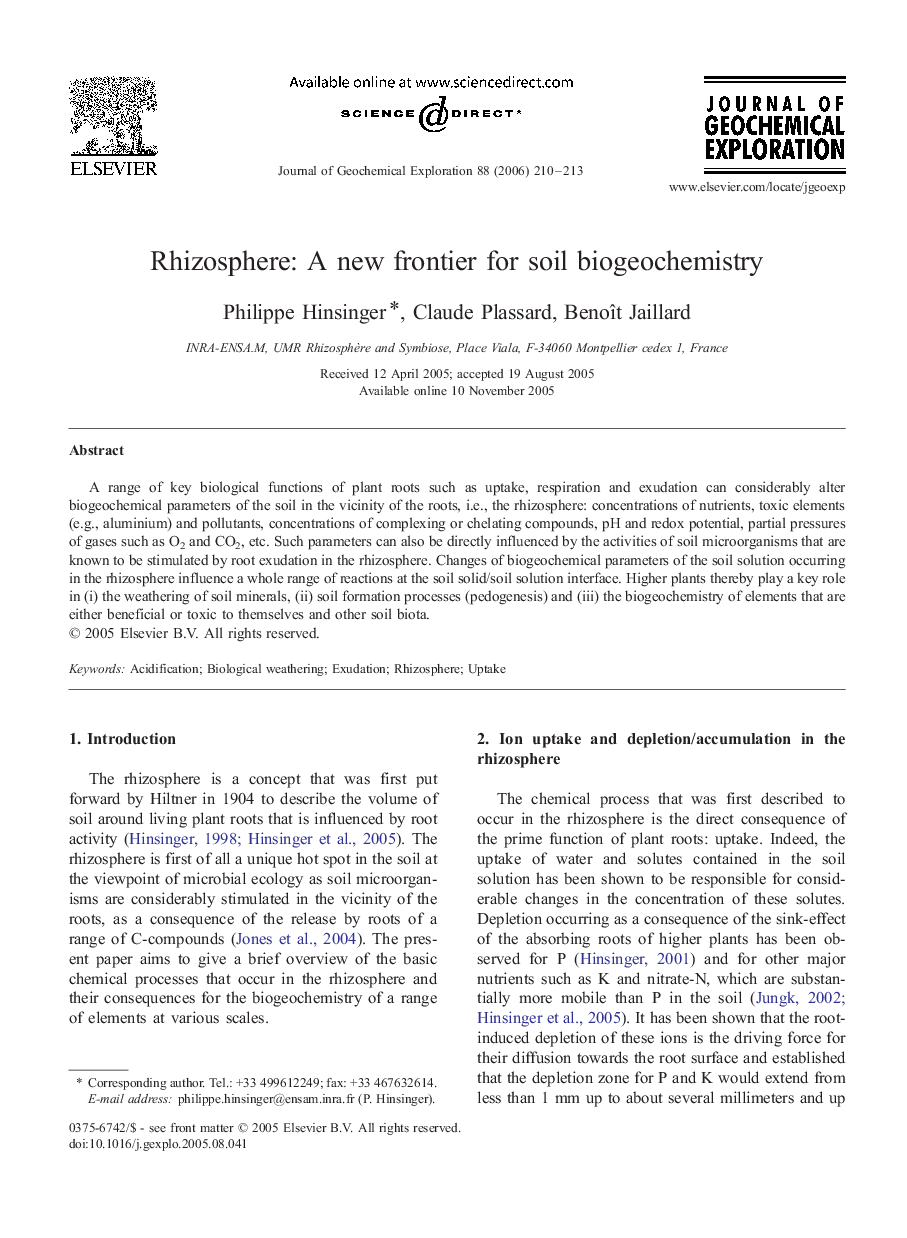| Article ID | Journal | Published Year | Pages | File Type |
|---|---|---|---|---|
| 4458568 | Journal of Geochemical Exploration | 2006 | 4 Pages |
A range of key biological functions of plant roots such as uptake, respiration and exudation can considerably alter biogeochemical parameters of the soil in the vicinity of the roots, i.e., the rhizosphere: concentrations of nutrients, toxic elements (e.g., aluminium) and pollutants, concentrations of complexing or chelating compounds, pH and redox potential, partial pressures of gases such as O2 and CO2, etc. Such parameters can also be directly influenced by the activities of soil microorganisms that are known to be stimulated by root exudation in the rhizosphere. Changes of biogeochemical parameters of the soil solution occurring in the rhizosphere influence a whole range of reactions at the soil solid/soil solution interface. Higher plants thereby play a key role in (i) the weathering of soil minerals, (ii) soil formation processes (pedogenesis) and (iii) the biogeochemistry of elements that are either beneficial or toxic to themselves and other soil biota.
